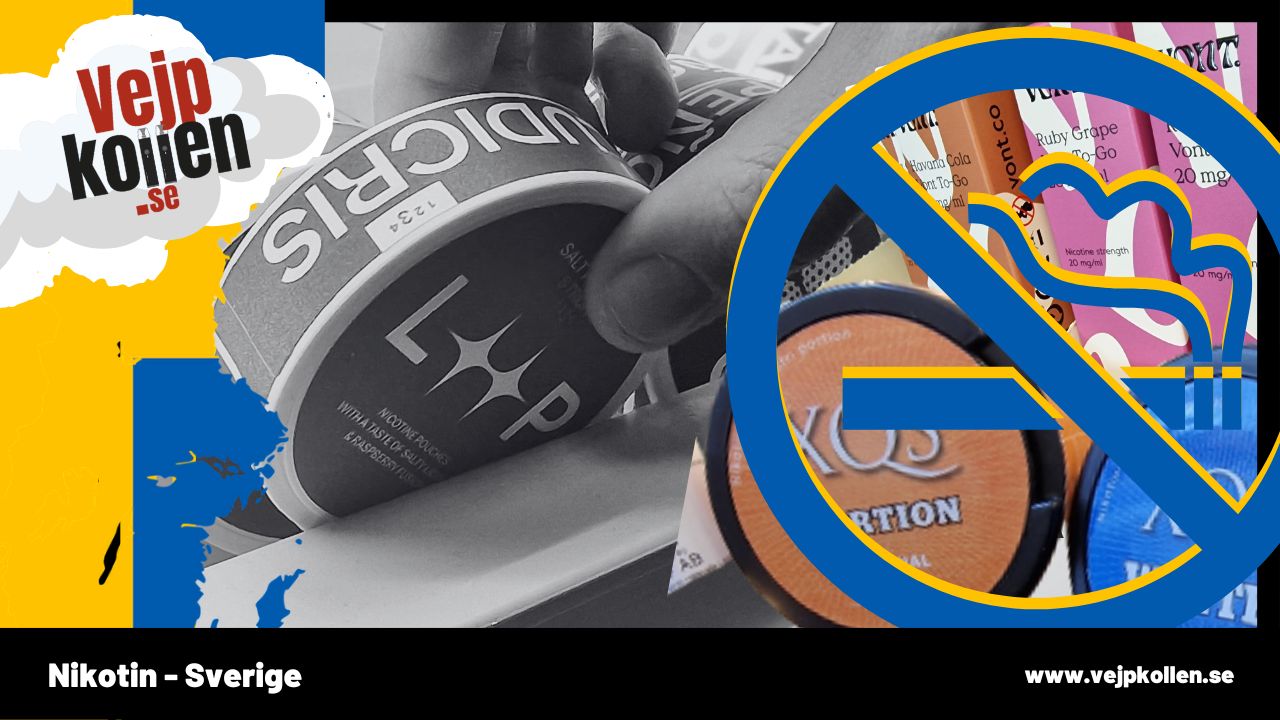More than half of the shops selling white snus fail to check the age of young people who want to buy. This is the result of a survey of 600 shops carried out by the trade associations Convenience Stores Sweden and the Swedish Service Station Organisation.
"This is an important wake-up call" says Robert Dimmlich, CEO of OSS.
Since 2022, the sale of nicotine pouches to people under the age of 18 has been banned. At the same time, white snus has grown in popularity, not least among the younger population. Use is highest in the 17-29 age group and, according to CAN, almost 20 per cent of upper secondary school students in year 2 have used white snus at some point in the last 30 days.
OSS and Conveneience Stores Sweden are two trade associations that together organise the majority of Swedish service stations and convenience chains in Sweden. And when the organisations checked how 600 of the associations' member stores were doing, it turned out that 52% did not check the ID of suspected young people who wanted to buy white snus.
"It's hard to say exactly why. But we shouldn't forget that this law is very new and not all shop staff may be up to speed with what applies" says Bengt Hedberg, CEO Convenience Stores Sweden.
"Important work ahead of us"
The survey was presented in connection with a seminar in Almedalen and, according to both Bengt Hedberg and Robert Dimmlich, the results show that the trade associations have important work ahead of them.
"We need to find out what has gone wrong and how we as organisations can support our members to improve. A warning system that signals when a product with an age limit appears at the checkout is one option. At the same time, our members' stores may have as many different checkout systems. This will be a challenge." notes Robert Dimmlich whose organisation OSS has 900 members in the service and petrol station sector in Sweden.
More about judgement than risk
Bengt Hedberg and Convenience Stores Sweden work closely with major chains such as Reitan (Pressbyrån, 7-Eleven etc) and Circle K. He sees a possible solution in better explaining the purpose of the age limits.
"Many people may think that the age of smokeless products such as white snus and e-cigarettes is not important. There, the message of harm minimisation has probably been well received. But the age limit may not be there primarily because of major health risks, but because we do not believe that people under 18 have developed sufficient judgement to assess the consequences of addiction. That's a message we need to get across better, I would say," says Bengt Hedberg.
Good for the industry to get involved
The industry organisations also invited representatives of the political youth associations to discuss the issue in more detail. The question was: How do we prevent minors from getting hold of nicotine products?
"Children use nicotine too, there's no question about it. In the best of worlds, they can't get hold of it that easily. But, it's a new law and regulation doesn't automatically lead to change. That's why it's great to see this commitment from the industry, I think. This is the level at which the issues need to be resolved. Politicians would do well to step back and make sure that the industry has the tools it needs." said Louise Hammargren, 1st Vice President, Christian Democratic Youth League, commenting on the somewhat disappointing result.
"Age limits do not solve everything"
She was joined by Alice Landerholm, Political Secretary, Moderaterna Strängnäs
"We cannot expect age limits to solve everything. There is obviously a demand here, and it's more a question of attitude, which we can address through better information in schools."
Want to avoid moralism
However, she said that the message from society around white snus, or for that matter e-cigarettes, should not be too moralising.
"Young people are not stupid just because we don't have grey hair. We can take in balanced information and make decisions based on it." Sade Alice Landerholm.
Problems in both chains and non-chains
The survey was conducted by Mystery Shopper in co-operation with the tobacco company Philip Morris. 600 stores participated, both chain and non-chain. 48% checked the age of suspected young people. 52% did not. There was no difference in results between chains and non-chains.




